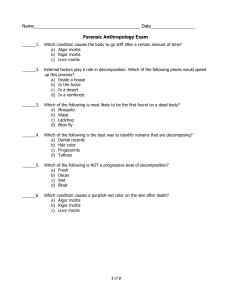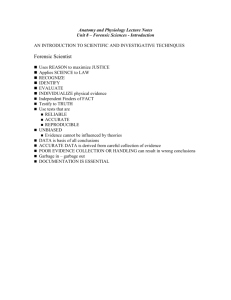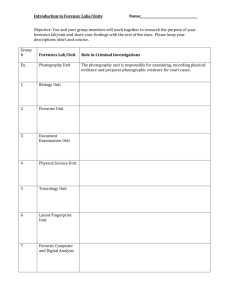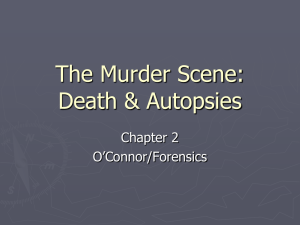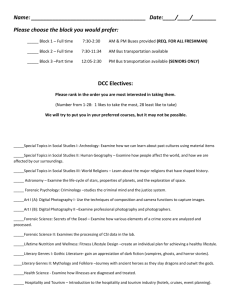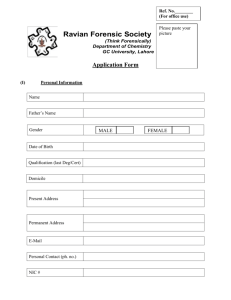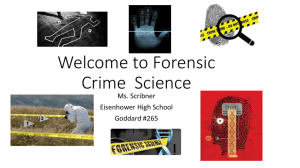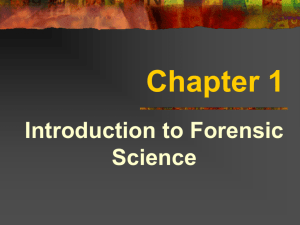Forensic Science 1
advertisement
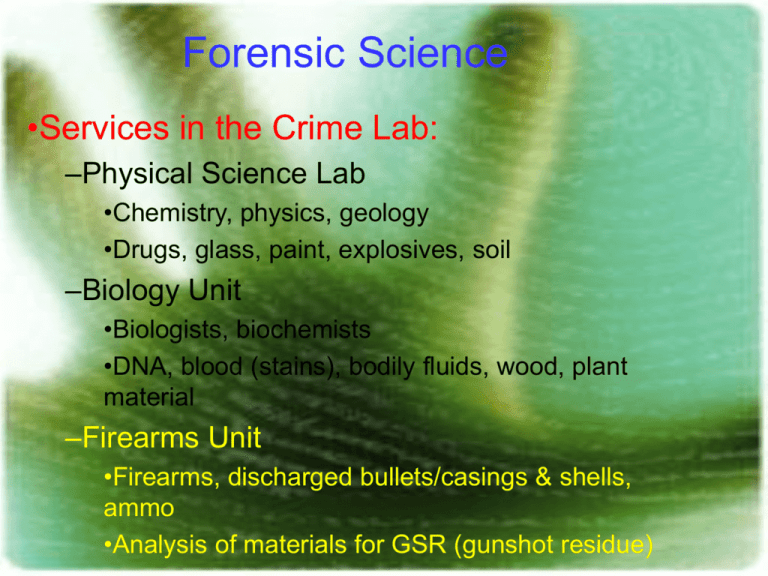
Forensic Science •Services in the Crime Lab: –Physical Science Lab •Chemistry, physics, geology •Drugs, glass, paint, explosives, soil –Biology Unit •Biologists, biochemists •DNA, blood (stains), bodily fluids, wood, plant material –Firearms Unit •Firearms, discharged bullets/casings & shells, ammo •Analysis of materials for GSR (gunshot residue) • Document Examination Unit – Handwriting/type analysis • Authenticity or source – Indented writings, other anomalies • Photography Unit – All aspects of photography • Digital, infrared, UV, X-ray (unseen evidence) • Prepares photos for court Extras: • Toxicology Unit (poisons/drugs) • Latent Fingerprints (hidden) • Polygraph Unit (interrogation) • Voiceprint Analysis Unit (telephone or tape analysis) • Crime-Scene Investigation Unit (specialize in evidence collection) Other specializations in forensics: • Forensic Pathology (Medical Examiners): – – – – – Who is the victim? Injuries present When did the injuries occur? How were the injuries produced? CAUSE OF DEATH • Done by autopsy • How is time of death determined?: Determining Time of Death by determining stage of decomposition: • Rigor Mortis: Muscles spend excess ATP by becoming rigid (up to 36 hours) • Livor Mortis: – Blood settles to low points of body for first 12 hours after death – Not affected by points of constriction • Tell position of body • Algor Mortis – Body cools in predictable fashion until ambient (room temp) – Rule of thumb: 1 -1.5 degrees per hour (norm. cond.) • Vitreous Humor: Potassium is released into fluid of eye in a predictable fashion • Other: amount/cond. of food in stomach • Forensic Anthropology: Identification and examination of skeletal remains • Forensic Entomolgy: Study of insects and their relationship to investigation • Forensic Psychiatry: relationship b/n human behavior and legal precedings – Competence? – Profiling • Forensic Odentology: Teeth – Bite marks in cases – Last remaining for ID
